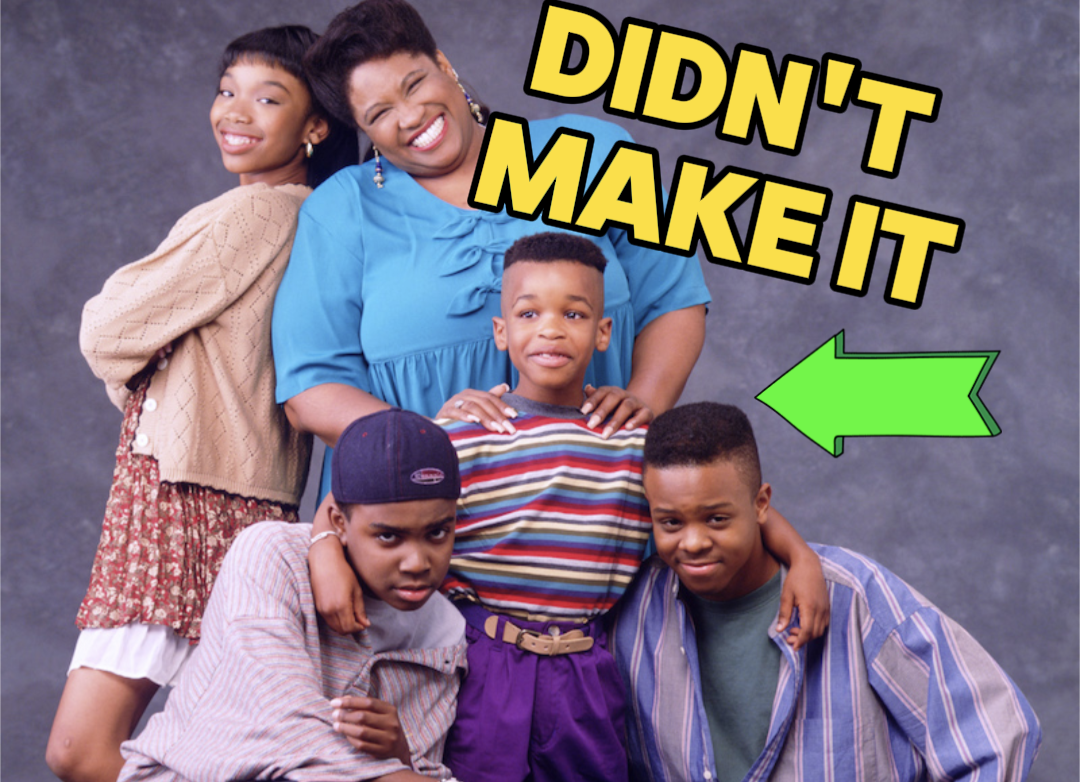
The 1990s were a golden age for television, with iconic shows like Friends, The X-Files, The Fresh Prince of Bel-Air, and Seinfeld becoming staples of popular culture. However, not all shows from the era enjoyed long runs or found lasting success. A number of promising shows premiered with high hopes but struggled to connect with audiences or suffered from poor timing, leading to their early cancellations. Here are a few of the standout TV shows from the 90s that didn’t make it past their first season—or, in some cases, even their first few episodes.
1. “The Torkelsons” (1991)
The Torkelsons was a family sitcom that aired on NBC in 1991. It revolved around a quirky single mother and her eccentric children living in a small town. Despite a warm reception for its quirky humor and unique premise, The Torkelsons struggled to find an audience. The show was canceled after only one season, though it was later reworked into a spin-off called Almost Home (1993), but this too failed to gain traction. The charm of The Torkelsons might have been ahead of its time, as audiences in the early ’90s were not ready for a family comedy that was both gentle and offbeat.
2. “The Adventures of Brisco County Jr.” (1993)
A cult favorite that had a passionate, albeit small, fanbase, The Adventures of Brisco County Jr. starred Bruce Campbell as a charming, crime-fighting lawyer in the Old West. Blending action, comedy, and science fiction elements, the show had a unique and oddball premise that never quite clicked with mainstream audiences. Airing on Fox, the show was canceled after just one season. Though the show’s mix of genres was seen as innovative, it struggled to find a consistent audience, partly due to being ahead of its time. Nonetheless, it has since garnered a loyal following, and is often cited as one of the best “forgotten” shows of the ’90s.
3. “Heat Vision and Jack” (1999)
Created by Ben Stiller, Heat Vision and Jack starred Jack Black as an ex-astronaut who becomes a superhero after an accident gives him extraordinary powers. With a script written by Rob Schraub and Dan Harmon (the creators of Community), and featuring a star-studded cast, including Owen Wilson and Stiller himself, the show seemed poised to succeed. However, it was far too unconventional and bizarre for mainstream TV. The pilot, directed by Stiller, was met with critical praise, but Fox chose not to pick up the show after airing it only once. In the years since, Heat Vision and Jack has become a cult classic, appreciated for its eccentric humor and unique tone.
4. “The Cape” (1996)
Before The Dark Knight or Marvel’s Cinematic Universe, there was The Cape. This short-lived series followed a mild-mannered man who, after being wrongfully accused of a crime, adopts the persona of a superhero named “The Cape” to fight crime and clear his name. While the idea of a superhero show seemed promising, The Cape was widely criticized for its campy tone, predictable plots, and lackluster special effects. Despite having a charismatic lead in David Keith, The Cape was unable to resonate with viewers, leading to its cancellation after only 13 episodes.
5. “Merriam-Webster’s Word of the Day” (1991)
In an era when educational programming was still fairly popular, Merriam-Webster’s Word of the Day was a short-lived attempt to engage children with language. The show was based on the iconic dictionary brand and aimed to teach kids a new vocabulary word every day. While educational, the concept lacked the excitement and relatability needed to capture the attention of young audiences. Though it had a noble goal, the show’s stiff presentation and niche target audience led to its swift disappearance from the airwaves.
6. “The Jerry Springer Show” (1991)
Though Jerry Springer’s talk show became one of the most iconic guilty pleasures of the late ’90s, it had a rocky start. Initially, Springer’s show was a serious political talk show, but when ratings lagged, the format was changed to feature outrageous, sensational topics. The Jerry Springer Show quickly became infamous for its shocking and controversial content, including fights and family disputes. Despite becoming a massive success later in the decade, its early years struggled to find an audience, and the show’s bizarre, sensational shift was initially met with skepticism.
7. “The IT Crowd” (1997)
Though The IT Crowd would later become a British sitcom that lasted for several years, its American adaptation in the ’90s was short-lived. NBC tried to adapt the British show for U.S. audiences in 1997, hoping to capture the same blend of quirky humor and workplace hijinks. However, the American version never made it past the pilot. The humor did not resonate with American audiences, and the series’ British origins were not enough to carry it. Though the original show found great success years later in the UK, this attempt to adapt it in the ’90s was a failure.
8. “G vs E” (1999)
Another Fox show, G vs E was a supernatural drama that dealt with the balance between good and evil. Set in a world where the forces of good and evil are personified by agents, the show featured an unlikely team of heroes, led by a man who had died and was sent to the “good” side of the afterlife. Although it had an interesting premise and a devoted fanbase, the show’s relatively abstract themes failed to attract mainstream viewers. After one season and only 13 episodes, G vs E was canceled. Today, it remains a cult hit, praised for its unique concept and execution.
9. “Supertrain” (1979)
Though not technically a ’90s show, the show Supertrain aired during the late ’70s and early ’80s and was often brought up as a cautionary tale for 1990s TV executives. Its flashy premise—about a luxurious futuristic train with amazing amenities—was destined for failure due to over-the-top production costs, hampered by its lackluster writing and execution. It stands as a “what could have been” story for a show that could have defined an era but ultimately tanked quickly.
Conclusion
In the competitive world of 90s TV, these shows stand as examples of how not every great idea or promising concept will find success. While some of these shows are now fondly remembered as cult classics, they failed to gain mainstream attention or last more than one season during their original runs. Whether due to poor timing, miscasting, or simply not resonating with the audience, these series remind us that even in a decade of unforgettable television, not every show has the staying power to make it past its initial run.

Leave a Reply